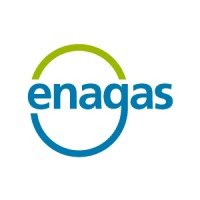Norway and Germany to strengthen cooperation on hydrogen

Federal Minister Robert Habeckhas travelled to Norway’s capital to hold political talks, which will focus on the establishment of climate-neutral energy supply, and in particular the production and supply of hydrogen and the decarbonisation of energy-intensive industrial sectors.
To this end, Germany and Norway intend to intensify and expand their cooperation on energy. A Joint Statement and a Joint Declaration were signed in Oslo today at the beginning of the visit.
During his visit, Minister Habeck will be talking with Norway’s Prime Minister Jonas Gare Støre and meeting with his Norwegian counterparts Terje Aasland, Minister of Petroleum and Energy, Jan Christian Vestre, Minister of Trade and Industry, and Espen Barth Eide, Minister of Climate and Environment. In addition, talks are scheduled to take place with business representatives, including in the German-Norwegian Chamber of Commerce. On Friday, Minister Habeck will be visiting the world’s first industrial-scale carbon capture installation in a cement production plant in Brevik, which is part of the cement plant run by the company Heidelberg Materials, and Nel company located in the Herøya industrial zone, where the first fully automated plant for the production of electrolysers worldwide has gone into operation.
Federal Minister for Economic Affairs and Climate Action Robert Habeck said: “Norway is an important, like-minded and very reliable partner for Germany. Since the beginning of Russia’s war of aggression against Ukraine last year and the resulting energy crisis, this has again become impressively clear. We want to further deepen our close cooperation on energy and multilateral climate issues. Together, we want to press ahead with the decarbonisation of the economy and take the necessary steps now. Norway is currently our most important energy supplier and this should remain the case on our path towards a climate-neutral future. Today, we are importing the majority of the gas we need from Norway, and in future we intend to increasingly import offshore wind energy and hydrogen, initially blue hydrogen, which is gradually to be replaced by green hydrogen. For this purpose, we now need to establish together a European grid and hydrogen infrastructure and stimulate production. Futhermore, we want to strengthen important areas of green industrial policy, including battery cell production, microelectronics and raw materials sourcing.”
At the beginning of his visit, Federal Minister Habeck signed a Joint Statement on cooperation on hydrogen with Minister Aasland and a Joint Declaration with Minister Vestre.
In the Joint Declaration, Norway and Germany agree on a strategic partnership in the fields of climate, renewable energy and green industry. The common aim is to press ahead with the decarbonisation of the economy. To this end, the partnership in the energy sector, including the offshore grid infrastructure, is to be reaffirmed and developed in the context of a working programme. In addition, Germany and Norway will intensify their cooperation in the field of raw materials and the related strategic value chains. This includes microelectronics. The cooperation also covers carbon storage, especially in view of storage possibilities in Norway.
In the Joint Statement on hydrogen, Norway and Germany reaffirm their joint intention to ensure large-scale supply of hydrogen by 2030 and to establish the necessary infrastructure from Norway to Germany.
According to figures by the European Hydrogen Backbone initiative, Norway’s potential to produce green hydrogen totals up to 50 THW by 2030 and 150 THW by 2040. The country’s consumption of green hydrogen is relatively low. Germany therefore plans to import green hydrogen from Norway in the medium term. The talks on a hydrogen pipeline are being continued. A joint feasibility study is currently being carried out with the participation of the business community as an outcome of a bilateral round table. The results are expected to be available in spring 2023.
The security of the gas pipelines was an another item on the agenda. In the context of the Norwegian-German Pipeline Commission, State Secretaries of the Ministries are to meet soon together with experts to further improve the security of the gas pipelines connecting Norway and Germany.
